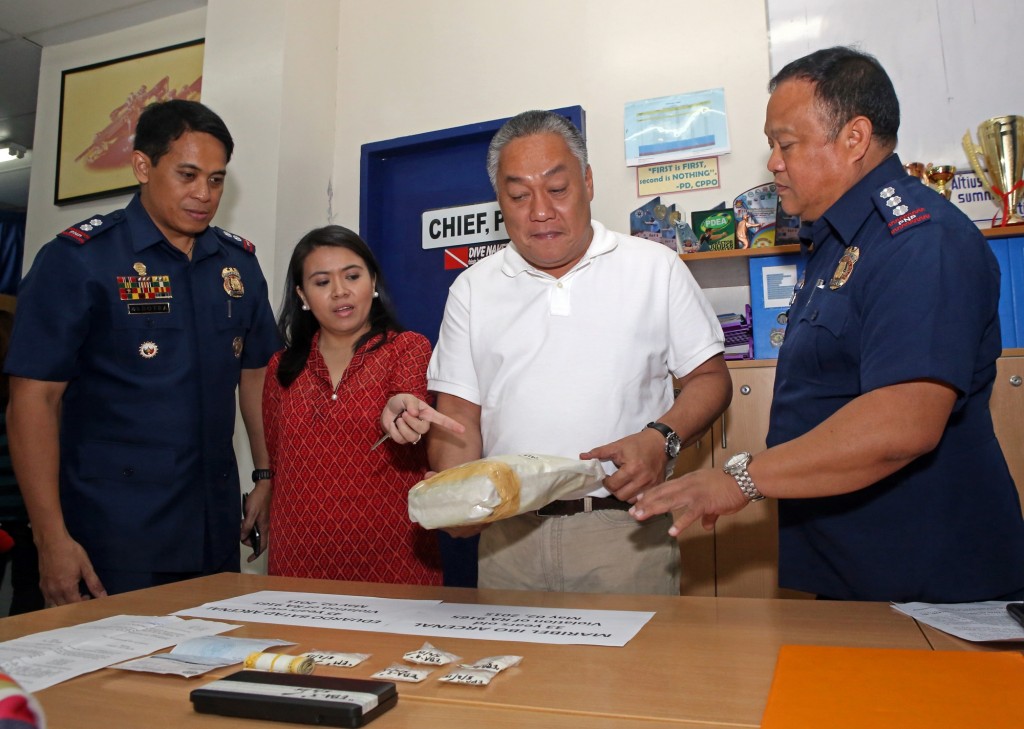THE Cebu Provincial Anti-Drugs Abuse Office (CPADAO) disclosed that at least a dozen government employees in the province had failed in surprise drug tests conducted this year. However, results which showed them positive for illegal drugs are still subject to confirmatory tests.
Cebu Provincial Anti-Drugs Abuse Office (CPADAO) head Ivy Meca said that over the weekend, CPADAO conducted drug testing in three barangays in Minglanilla. In Barangay Poblacion Ward 3, 29 government employees underwent drug testing, with three barangay tanods testing positive for shabu (Methamphetamine Hydrochloride) while in Barangay Poblacion Ward 4, 42 underwent the drug test, with three barangay tanods likewise testing positive for shabu.
In Barangay Tunghaan, 63 government workers were tested, with one barangay job-order employee testing positive for shabu. Last week, the agency also conducted drug tests on 218 government employees from Carmen, with five job-order employees testing positive for shabu; while a drug test conducted last January 10 on 21 employees of the Bureau of Jail Management and Penology in Danao City yielded negative results.
Meanwhile, Meca clarified that there is yet no barangay in Cebu which can be considered as drug free or drug-cleared.
Last December, Cebu Provincial Police Office (CPPO) director Senior Supt. Eric Noble announced that the whole Camotes Island was now drug free.
Meca clarified that a barangay can only be declared as “drug-cleared” while it is the whole province that can be declared as “drug-free”, explaining that the two terms are not the same.
CPADAO is still in the process of validating the illegal drug situation in barangays that have been endorsed by the Cebu Provincial Police Office (CPPO) as “drug-cleared”. “So we need to start in the barangay level in clearing it then we go up to the LGU (local government unit) level then before we could declare that the whole province of Cebu is drug-free,” said Meca.
The Philippine National Police (PNP) has recommended 202 barangays across Cebu province for validation by CPADAO as drug-cleared.
But none of the 103 barangays checked by CPADAO so far, can be declared as “drug-cleared” yet said Meca as there are parameters set by the Dangerous Drugs Board (DDB) for the barangay drug-clearing operation process that still need to be complied with.
“The initiative was there already. There is an initiative. We appreciate the effort of the different police stations,” said Meca.
However, Meca explained that in order to abide by DDB parameters, their next step after the validation would be for CPADAO, together with the barangay police, to come up with their action plan for 2017. The action plan will then be submitted to the barangay council for approval.
The approval, Meca said, would mean that the barangay has conducted post-operation initiatives as by then, a budget would be allocated, thus assuring that the initiatives will be operational. “So far lang, sa atong na-validate, I did not encounter any barangay official that is not cooperating,” she said.
“We are trying to make things straightened, we cannot just certainly clear a barangay for the sake of clearing it,” Meca added.
